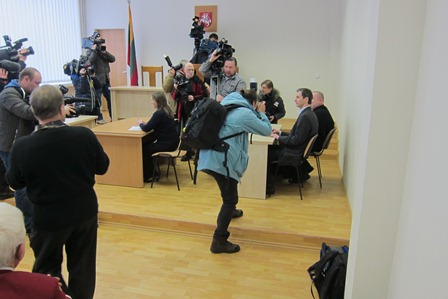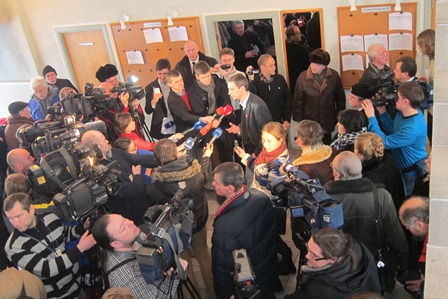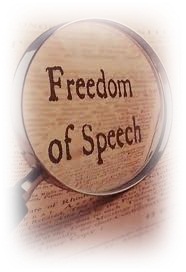The small courtroom in the building of the Lithuanian Supreme Court a few yards away from the nation’s Seimas, or parliament, was packed with journalists and mostly older generation nationalist opponents of Algirdas Paleckis. Two judges, speaking in different sections, upheld the earlier verdict against him for having proposed a version of events for January 13th 1991 that is at odds with national historiography.
If there were any observers on hand from human rights organizations or Western embassies, they were not known to those journalists approached at the scene by Defending History.
Mr. Paleckis has been tried under a 2010 statute which has in effect also served to promote Holocaust Obfuscation by making the opinion that there was only one genocide in Lithuania illegal.
This journal’s views were expressed in an earlier editorial, in 2011. Since then, Defending History has expressed admiration for Mr. Paleckis’s courage in speaking out on issues of the Lithuanian Holocaust (particularly against the glorification of the perpetrators of 1941), antisemitism and state hypocrisy, without in any way agreeing with his narrative of 1991. In any case, Defending History steadfastly supports the notion that the peoples of the “new” parts of the European Union and NATO should have the same standards of free speech and freedom expression as all others.

Before the hearing…

…and after
Paleckis’s party, the Socialist People’s Front, issued a statement immediately after the court’s confirmation of the earlier verdict stating that an appeal would be made to the European Court of Human Rights in Strasbourg.
The following was Defending History‘s front page box summary coverage prior to today’s hearing. It now appears that the case’s importance will not be more widely recognized until the run-up to the Strasbourg appeal.
Tension Mounts in Vilnius Over “Free Speech Trial of the Teens of the New Century”
